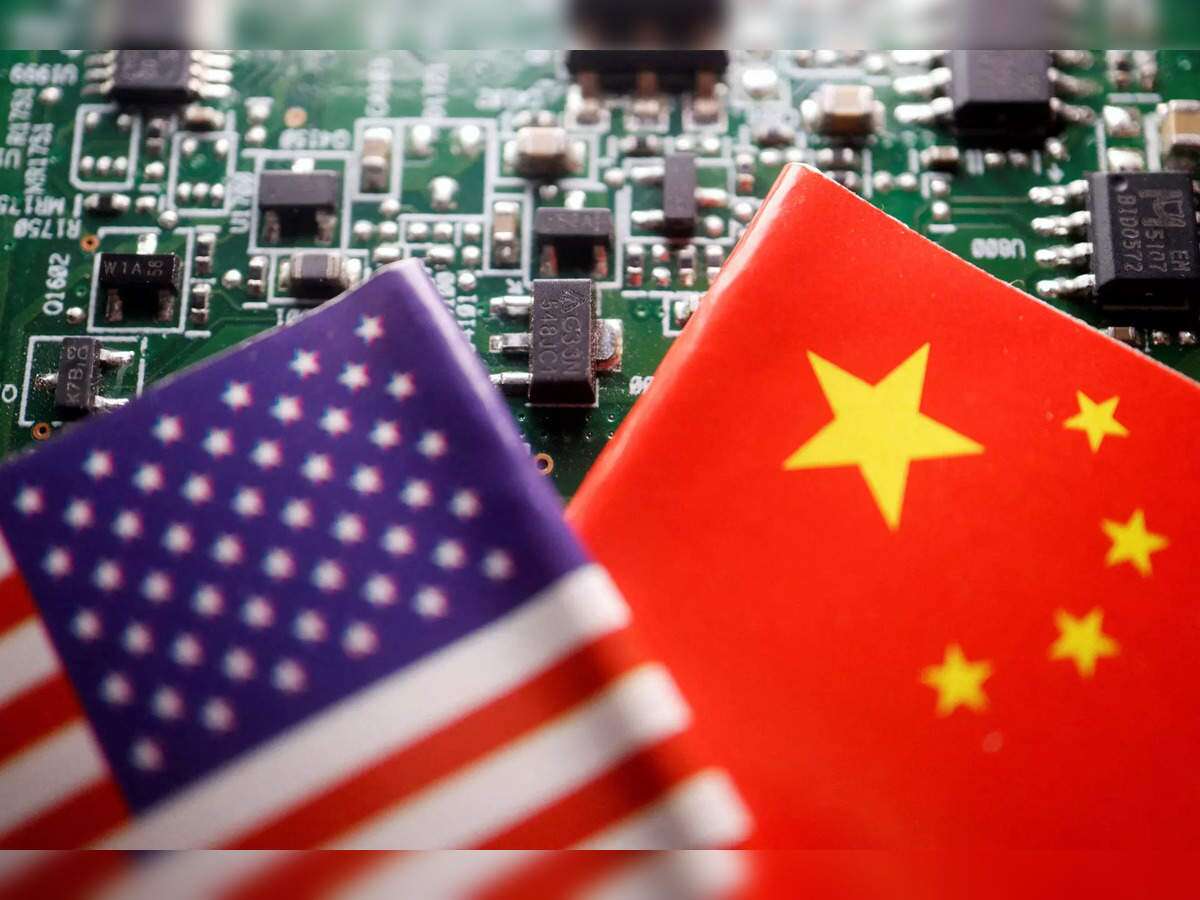
Semiconductors character in caller years pass a focal constituent in The U.S.’s efforts to impede China’s technological development. Now Washington has its oculus related yet different red-warm tech assemblage wherever China is making splendid strides: batteries for electrical automobiles.
Earlier this month, The Departments of Treasury and Energy proposed guidelines that could limit electric conveyance buyers from claiming taxation credits if their automobiles comprise artillery substances from China and distinct nations considered “adverse” to The U.S. Under President Joe Biden’s signature ambiance rule accepted beyond yr, clients are entitled to up to $7,500 in subsidies for purcahses of EVs made in The U.S. Utilizing by and large home materials.
In response, China’s Ministry of Commerce fired back past week, saying The U.S. Guidelines “discriminate in opposition to Chinese corporations and spoil WTO guidelines.” The removal of Chinese suppliers from U.S. Taxation advantages is truely a “normal non-marketplace-oriented argumentation and practice,” The ministry said.
The rules, which motive to trim The U.S.’s dependence linked China’s proviso chains in a caller generation of decoupling, could apt inhibit Biden’s efforts to thrust EV income arsenic portion of The President’s scheme to cut planet-warming greenhouse country emissions in 1/2 by using 2030.
Also astatine liking is The U.S.’s reason to diminish China’s energy in a fast-developing assemblage spurred by way of countries’ modulation toward electrical motors. CATL and BYD, 2 of China’s biggest artillery makers, collectively accounted for astir 53% of The global’s EV artillery utilization for The first 10 months of this 12 months, in line with records from SNE Research.
As of Q3 this year, China is The world’s largest EV marketplace pinch a fifty eight% proportion, accompanied by means of The U.S. And Germany, according to research affected person Counterpoint.
South Korean giants for illustration LG, Samsung and SK On supply competitory alternatives to China’s cheaper and precocious batteries and are astir apt to apply from souring U.S.-China relationships. But furthermore The Korean corporations are reeling from The caller geopolitical headaches.
Despite The fact that SK On has been tapped by way of a few Ford and Hyundai to institution up artillery plans in The U.S., its genitor SK Group’s president Chey Tae-won precocious blamed The U.S. For retaining artillery fees high. The The artillery limb of The Korean chaebol is now compelled to appearance some place else for non-Chinese materials. China owns overmuch of The world proviso concatenation for EV batteries, from mining unusual minterals, refining to compartment manufacturing.
To aid their costs appeal, Chinese artillery corporations character been clamoring to group up factories in America with a view to proceed to suffice their buyers for The EV taxation credit. Industry giants for example Gotion, BYD and CATL person made strategical plans to fabricate in The U.S., even though their travel isn’t always without obstacles. Ford, for examples, has temporarily paused its plans to build a $three.Five cardinal EV artillery mill pinch CATL in Michigan arsenic U.S. Politicians scrutinize its woody pinch The Chinese firm.
Frequently Asked Questions about america-China Tech War and Electric Vehicle Batteries
1. What are the proposed policies regarding electric automobile batteries inside the US-China tech war?
The US Departments of Treasury and Energy have proposed rules that could limit tax credits for electric powered automobile buyers if their automobiles contain battery materials from China and different international locations considered “adverse” to the US. The aim is to lessen dependence on China’s supply chains.
2. How will those policies affect electric powered vehicle customers inside the US?
If carried out, those policies might limit electric vehicle buyers from claiming tax credit if their motors use battery materials from China or other targeted international locations. This may additionally effect the affordability of electric cars for a few clients.
3. Why is China’s Ministry of Commerce criticizing those guidelines?
China’s Ministry of Commerce argues that these guidelines discriminate in opposition to Chinese agencies and violate World Trade Organization (WTO) guidelines. They don’t forget it a non-marketplace-orientated coverage and exercise.
4. How does this impact President Biden’s environmental dreams?
These regulations ought to preclude President Biden’s efforts to promote electric powered automobile sales as a part of his plan to reduce greenhouse fuel emissions via 50% by way of 2030. The restrictions on Chinese battery materials may additionally limit the provision and affordability of electric motors manufactured in the US.
5. Who are the principal gamers inside the international EV battery market?
China dominates the global supply chain for electric car batteries. CATL and BYD, of China’s largest battery producers, account for a enormous part of the world’s EV battery usage. However, South Korean corporations like LG, Samsung, and SK On additionally offer competitive options to China’s batteries.
6. Are there any geopolitical headaches affecting battery manufacturers?
Yes, even South Korean battery manufacturers are facing geopolitical headaches. SK Group’s president these days blamed america for preserving battery fees excessive, forcing their battery arm, SK On, to searching for alternative resources for non-Chinese substances.
7. Are Chinese battery firms making plans to set up factories inside the US?
Yes, Chinese battery companies, which includes Gotion, BYD, and CATL, have strategic plans to fabricate batteries within the US. This lets in them to maintain qualifying for the electrical vehicle tax credit score and keep a presence inside the developing US market.
8. What demanding situations do Chinese battery companies face in setting up factories within the US?
Chinese battery companies may face obstacles in setting up factories within the US, along with scrutiny from US politicians involved about national security implications and capacity partnerships with Chinese businesses.
9. What impact does this have on Ford’s plans for an EV battery factory with CATL?
Ford temporarily paused its plans to build a $3.5 billion EV battery manufacturing unit with CATL in Michigan because of scrutiny from US politicians concerning its partnership with the Chinese company. This highlights worries over US-China collaborations in vital industries.
10. How will these developments shape the destiny of the global EV battery marketplace?
The US-China tech warfare and regulations on battery materials have the potential to reshape the global EV battery market. It may additionally create opportunities for opportunity suppliers like South Korea even as using Chinese battery manufacturers to establish a presence within the US to preserve market get entry to and competitiveness.






